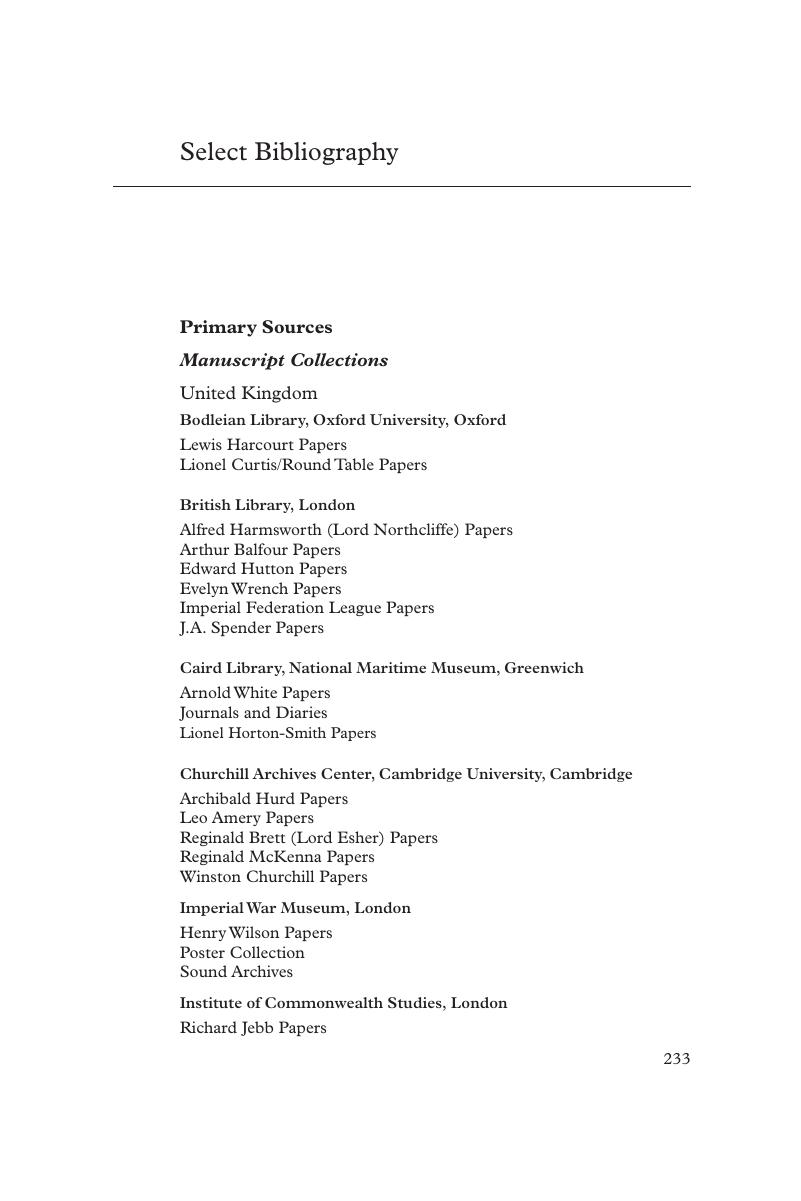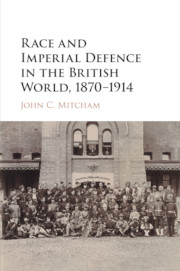Book contents
- Race and Imperial Defence in the British World, 1870–1914
- Race and Imperial Defence in the British World, 1870–1914
- Copyright page
- Contents
- Figures
- Book part
- Introduction
- 1 Imperial Britons
- 2 Defending Greater Britain
- 3 Imperial Unity, Masculinity, and the South African War
- 4 The Empire on Parade
- 5 “Sea League of All the Britons”
- 6 A Young Briton’s Duty
- 7 “A Britannic Alliance”
- Conclusion
- Select Bibliography
- Index
- References
Select Bibliography
Published online by Cambridge University Press: 05 March 2016
- Race and Imperial Defence in the British World, 1870–1914
- Race and Imperial Defence in the British World, 1870–1914
- Copyright page
- Contents
- Figures
- Book part
- Introduction
- 1 Imperial Britons
- 2 Defending Greater Britain
- 3 Imperial Unity, Masculinity, and the South African War
- 4 The Empire on Parade
- 5 “Sea League of All the Britons”
- 6 A Young Briton’s Duty
- 7 “A Britannic Alliance”
- Conclusion
- Select Bibliography
- Index
- References
Summary

- Type
- Chapter
- Information
- Race and Imperial Defence in the British World, 1870–1914 , pp. 233 - 256Publisher: Cambridge University PressPrint publication year: 2016



